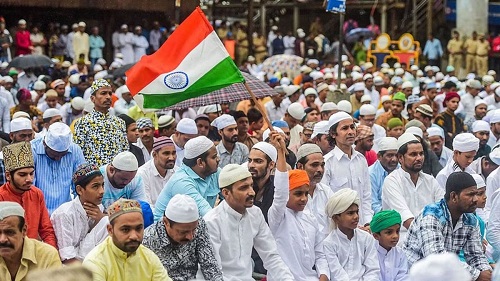GG News Bureau
New Delhi, 10th Feb. The acronym UCC stands for “one country, one law.” The Uttarakhand government recently had the UCC bill approved by the assembly. The nation has descended into debate the moment UCC is raised. The bill establishes uniform guidelines on legal matters such as marriage, divorce, inheritance, and adoption for all religions, castes, sects, and social classes. In Bharat, this isn’t the case at the moment, but there are rumors that the Central Government may take this step soon. Depending on one’s religion, there are various laws here. Laws similar to UCC are already in place in many nations throughout the world, even before Bharat.
The list of Muslim nations that adhere to UCC is extensive. Among them are nations that adhere to the Uniform Civil Code, such as Egypt, Turkey, Bangladesh, Philippines, and Pakistan. In these countries, there is no specific legislation pertaining to any one religion or community. Everyone is subject to the same laws. In addition, this law is applicable in America, Ireland, and numerous other nations. There is no distinct legal system in place here; instead, Islamic nations operate under Sharia law. Everyone is subject to the same laws.
Turkey
According to a report, in 2002, Turkey, a country with a majority of Muslims, amended the outdated legislation that had been in place since 1926 and reinstated gender equality. Equal rights for men and women in Turkey with regard to marriage, divorce, and property division have been established by the new law. The legal age of majority for marriage in Turkey is now 18 for both men and women.
Indonesia
In Indonesia, it is now required to register a marriage or divorce and to obtain court approval before the registration can be completed.
Azerbaijan
The legal age of marriage in Azerbaijan was lowered to 18 years old, and ten years ago, men and women were granted equal property ownership.
Saudi Arabia
Saudi Arabia began amending its civil laws as early as 2022. Marriage and divorce registration is now required there as well. In addition, women now have more rights when it comes to adopting children.
Nepal
The neighbouring nation of Nepal also outlawed polygamy in 2018 by amending its national civil law. Additionally, Nepal has made the registration of divorce and marriage cases mandatory. In addition, equal rights have been provided for both in terms of adoption and marriage. Numerous Muslim organizations are against it and refer to it as an assault on the rights of minorities.
Why are Muslims in Bharat protesting?
According to the All India Personal Law Board, the UCC would be against multiple articles of the Indian Constitution. The Hindu-Muslim unity will be harmed, according to Jamiat Ulema-e-Hind, by the Uniform Civil Code. The bill states that even Muslims will now be prohibited from getting married more than once without divorcing; however, Shariat permits Muslims to get married more than once. Furthermore, in UCC, a girl is said to be 18 years old, whereas in Shariat, the marriageable age is regarded as the onset of menstruation. Under the Uniform Civil Code, all marriages and divorces must be registered. When it comes to divorce, men and women have equal rights. Practices among Muslims such as triple talaq, halala, and iddat will be prohibited as soon as UCC is put into effect.
Muslims are allegedly misled by the opposition
A new debate about the Uniform Civil Code has erupted in Bharat as soon as Prime Minister Modi brought it up. According to PM Modi, Muslims are being misled by opposition parties regarding the UCC. Triple talaq and quadruple marriages are two evils that ought to stop. Although triple talaq was recently outlawed in Bharat, it was previously prohibited in many Muslim nations. It has long been prohibited in Muslim nations like Kuwait, Bangladesh, Malaysia, Iraq, United Arab Emirates, Indonesia, and others.


Comments are closed.